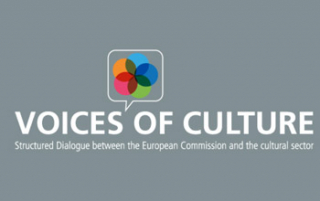ICCROM has participated in the Voices of Culture structured dialogue opened by the European Commission with selected stakeholders on the topic “Skills, Training and Knowledge Transfer: traditional and emerging heritage.”
While European expertise in heritage preservation and conservation is famed worldwide, the combined effects of the age pyramid and cuts in public budgets are affecting the transmission of knowledge and skills to the younger generations, weakening the sector’s potential to thrive into the future. At the same time, the skill set needed to care for and manage heritage is constantly broadening as well as deepening due to new technologies, economic and social pressures, innovations in work methods, and developments in both the definition and scope of heritage.
Policy attention is thus recommended on a sector-wide, macro-planning level in order to maintain the vigorous role that culture and heritage have historically played in the cultural, social and economic life of Europe. As well, culture and heritage should be positioned dynamically as drivers for future development. Culture can thereby support job creation, social inclusion, and cultural diversity along with the requalification of urban and rural at-risk zones.
These recommendations arose from the European Commission’s communication of July 2014 (Towards an integrated approach to cultural heritage for Europe) which highlighted multiple challenges facing the European heritage sector. These include increased risk of destruction due to natural or man-made hazards, decline in participation in traditional cultural activities, and new opportunities and challenges caused by digitization and online accessibility of cultural content.
As a means of response, the Commission developed the Voices of Culture series of structured dialogues to provide a framework for discussions between EU civil society stakeholders and the European Commission, thereby informing policy debates to strengthen and leverage the culture sector in Europe.
Six topics were selected for discussion between 2015 and the present, ranging from the inclusion of refugees and migrants through culture, intercultural dialogue in shared public spaces, developing entrepreneurial and innovation potential, strengthening participatory governance, and audience development through digital means.
ICCROM has collaborated in a consortium of 35 cultural heritage organizations under the leadership of the European Commission to develop a joint brainstorming report with recommendations, entitled Towards an Integrated Approach to Cultural Heritage for Europe – Prospectus on “Skills, Training And Knowledge Transfer For Traditional And Emerging Heritage Professions”. The process was coordinated with meetings in Brussels, Belgium in June and September 2017, while the finalized report was presented to the European Commission in Bucharest, Romania in October 2017.
The finalized report provides recommendations, sector mapping and overview, including training and skills needs, in order to support discussions for that policy development. ICCROM is proud to participate in this process, both to support the positive conclusions for strengthening the heritage sector in Europe, and also in recognition of the many important contributions that the European region has made to support ICCROM programmes, activities and operations worldwide.

